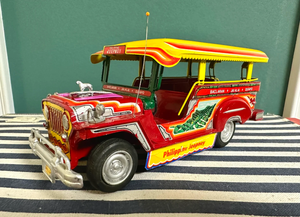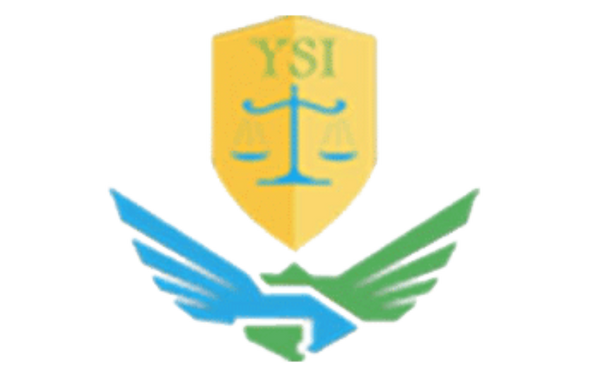
Detailed explanation of quality control for electric toys, introduction of relevant standards, and inspection services for quality verification and factory inspection.
As an important medium for children's entertainment, the quality and safety of electric toys directly affect children's health and usage safety. To ensure that electric toy products meet international safety standards and quality certification requirements, establishing a professional inspection process is of vital importance. This article will systematically introduce the inspection standards, testing methods and certification requirements for electric toys, providing a complete quality control guide for enterprises.
I. Quality Inspection and Certification System for Electric Toys
1.1 Electrical Safety Inspection Certification
Short-circuit protection professional certification: Standardized testing of insulation performance of circuit systems
Overheat protection inspection assessment: Strict temperature rise limit detection and certification
Battery safety special certification: Comprehensive inspection of leakage, overheating, and charging performance
Insulation strength professional test: Standardized certification of high-voltage tolerance capability
1.2 Mechanical Safety Inspection Certification
Structural Integrity Professional Certification: Thorough inspection of sharp edges and sharp points
Component firmness inspection and evaluation: Standardized test for assembly stability
Material strength professional certification: Inspection of impact resistance and drop resistance performance
1.3 Chemical Safety Inspection Certification
Hazardous Substance Limit Certification: Professional testing for lead, mercury, and phthalates
Material composition compliance inspection: REACH and ROHS standard compliance certification
Surface coating safety assessment: Standardized test for heavy metal content
II. On-site Inspection and Certification Implementation Standards
2.1 Visual Inspection Certification Process
Appearance Quality Professional Certification: Thorough inspection of surface defects and process flaws
Structural integrity inspection and evaluation: Component assembly, connection firmness certification
Label identification compliance certification: Verification of information accuracy and completeness
2.2 Function Testing Certification System
Operational Performance Professional Certification: Verification of normal operation of basic functions
Electrical safety inspection test: Evaluation of short-circuit and overload protection functions
Durability performance certification standard: Continuous operation stability test
2.3 Packaging Inspection and Certification Requirements
Professional certification for protective performance: Standardized assessment of transportation safety
Identification information integrity verification: Warning instructions, age identification check
Material environmental protection certification: Safety testing of packaging materials
III. Laboratory Inspection and Certification Standards
3.1 Electrical Safety Deep Certification
Professional insulation resistance test: Verification of insulation performance under standard conditions
Pressure resistance strength certification assessment: Compliance verification of high-pressure tests
Strict leakage current testing: Standardized certification of safety limits
3.2 Chemical Analysis Certification System
Professional detection of heavy metal content: Testing for harmful substances such as lead, cadmium, and mercury
Phthalate certification: Standardized testing for plasticizer content
Comprehensive analysis of material composition: Comprehensive chemical safety assessment of all materials
3.3 Mechanical Performance Certification Standards
Impact strength professional test: Standardized certification for anti-drop performance
Torque durability inspection and evaluation: Component connection strength test
Pressure tolerance certification: Verification of structural integrity limits
IV. International Standard Inspection Certification System
4.1 Certification Requirements for the US Market
ASTM F963 standard certification: Comprehensive inspection of physical and mechanical properties
CPSIA Compliance Certification: Lead Content, Third-Party Testing Requirements
UL Electrical Safety Certification: Professional Inspection and Evaluation of Electrical Components
4.2 EU Market Certification System
EN 71 Standard Certification: Requirements for Physical and Chemical Performance Inspection
EN 62115 Special Certification: Electrical Safety Inspection for Electric Toys
CE marking compliance: Mandatory certification for market access in the European Union
4.3 International General Certification Standards
ISO 8124 Certification: Inspection for International Toy Safety Standards
IEC 62115 Certification: Professional Electrical Safety Assessment for Electric Toys
ICTI Certification: International Toy Industry Responsibility Standards
V. Label and Identification Inspection and Certification
5.1 Mandatory Labeling Certification
Age Labeling Professional Certification: Appropriate age range is accurately indicated
Warning sign inspection assessment: Risk warning completeness verification
Manufacturer information verification: The enterprise qualification information is complete and accurate.
5.2 Information Integrity Certification
Professional Certification for Instructions: The operation guide is clear and complete.
Maintenance requirements include product inspection and evaluation: The maintenance instructions should be accurate and detailed.
Safety warning certification: Risk warnings are prominent and clear.
5.3 Multilingual Identification Authentication
Language version integrity: Full coverage of target market languages
Translation Accuracy Certification: Correct Use of Professional Terms
Cultural adaptability assessment: Localization requirements compliance
VI. Inspection and Certification Process Standards
6.1 Sampling Scheme Certification
Conduct statistical sampling in accordance with ISO 2859 standards
Comprehensive inspection and certification of key safety projects
Selection of representative samples based on scientific criteria
6.2 Inspection Environment Certification
Standardize the inspection laboratory environment
Regular calibration of professional testing equipment
The test conditions are strictly controlled.
6.3 Defect Level Determination
Critical Defect: Zero Tolerance for Safety Risks
Serious defect: Functionality issues are strictly controlled.
Minor defect: The appearance issue is within the acceptable standard.
VII. Key Control Matters for Factory Audit
To ensure that the quality of electric toys continuously meets the certification requirements, during the factory audit process, the following matters need to be given special attention:
Production process control certification: Establishing operation specifications for key processes
Supply Chain Management Certification: Implementing a Supplier Quality Assessment System
Calibration of testing equipment: Regularly calibrate testing instruments and equipment
Quality management system: Certified by ISO9001 quality system standard
Personnel qualification certification: Inspection personnel undergo professional training and obtain certificates before taking up their positions.
Inspection Certification Summary
The inspection and certification of electric toys is a comprehensive engineering process that encompasses electrical safety, mechanical performance, and chemical safety. By establishing a professional inspection procedure and strict quality standards, enterprises can ensure that their electric toy products meet international safety certification requirements, providing children with safe and reliable entertainment products.
分享这个商品

Detailed explanation of quality control for electric toys, introductio
As an important medium for children's entertainment, the quality and safety of electronic toys directly affect children's health and usage safety.
